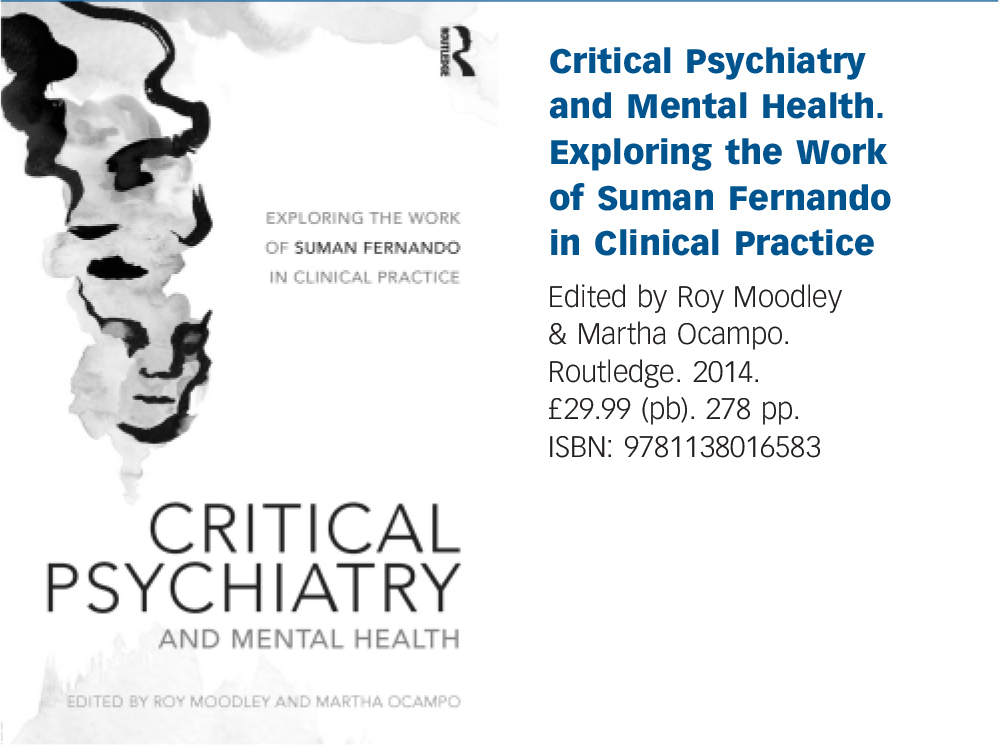
This book deserves a longer review. It sets out to explore the theory and practice of psychiatry (which means Western psychiatry) in relation to race and culture, and the burden of ‘otherness’ in mental health. It grounds itself in the pioneering critiques of the academic and former National Health Service consultant psychiatrist Suman Fernando, who is of Sri Lankan background. In 2007, Fernando refused an OBE as a protest that the mental health bill then going through parliament would not address the disproportionate rate of compulsory admissions of Black people.
Among the weighty academic figures who have contributed chapters, David Ingleby notes that Fernando’s first major book, Race and Culture in Psychiatry (1988), started not with a discussion of Black and minority ethnic patients but of ‘the culture of psychiatry’– an examination of psychiatry’s historical involvement in colonialism and racist practices. ‘Drapetomania’ was a diagnosis applied to slaves in USA, the primary symptom being a persistent urge to run away. Phil Thomas notes that compelling critiques of biomedical psychiatry originated in those groups most directly affected and constrained by its power – service users, feminists, Black people and those in the ex-colonial world.
Ingleby notes that it is important to distinguish between ‘critical’ approaches (which ask fundamental questions about the validity of interventions developed for one population being applied to another) and ‘technical’ approaches (which take the Eurocentric and biomedical assumptions of mainstream mental health treatment as a given and see the provision of services as simply a technical problem). Fernando, Ingleby and other contributors such as Laurence Kirmayer of McGill University, Canada, have critiqued the movement for ‘global mental health’ as an example of the latter approach. This movement disregards the range of mentalities and systems of value across the non-Western world and the gritty fact that as the source of their problems most people would point outwards, to their poverty-haunted predicaments, rather than inwards to the space between their ears. Fernando calls it the myth of ‘global’ mental health. The technical approach to health is not essentially different from that used to sell any other goods and services to ethnic minorities or ‘third world’ countries.



eLetters
No eLetters have been published for this article.